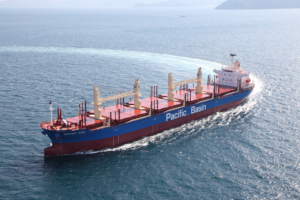The International Chamber of Shipping (ICS), the Commonwealth of The Bahamas, and the Republic of Liberia have submitted a detailed proposal to UN IMO for a Zero Emission Shipping Fund (ZESF).
The proposal, which is backed by shipowners worldwide, aims to accelerate the transition of the global commercial shipping fleet to net-zero emissions by 2050.
Under the proposal, contributions from ships per tonne of CO2e emitted will be used to reduce the significant cost gap between zero GHG fuels and conventional fuel oil, providing financial rewards to ships for the GHG emissions prevented by use of these new marine fuels.
The proposal includes support for the production of zero/near-zero marine fuels, development of new bunkering infrastructure in developing countries’ ports worldwide, and training in the safe use of new fuels.
A detailed impact assessment has already been conducted by Clarksons Research for ICS that highlights that a contribution rate which adds a cost in a range between US$20 to $300 per tonne of fuel oil consumed would have no disproportionately negative impacts on national economies in terms of delivered cargo prices.
This initiative could raise billions of dollars annually to support the maritime GHG reduction efforts, particularly in developing countries.
The Zero Emission Shipping Fund and the “feebate” mechanism will be considered by IMO Member States at their next round of GHG negotiations in March.
If governments agree, the ZESF will be approved next year to help achieve net zero GHG emissions from shipping by or close to 2050, in line with the GHG reduction targets adopted by IMO Member States.



